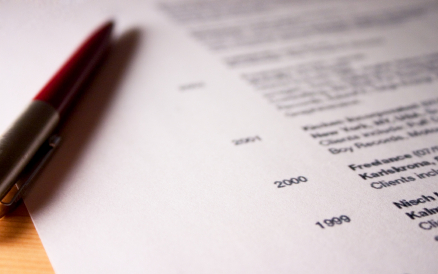When setting out as a freelance one thing which is often overlooked is a resume (or Curriculum Vitae, for the Brits!). Those of you going from working full time will more than likely already have a resume from previous job applications but even these will need some fine tuning if you want to attract good clients to your freelance business. As a freelance, your business is all about you as a person and your experience – and they best way to show this off is through a resume.
Work Experience
You’ll want to show that you have a good amount of experience in your field, so keep all your previous work experience from industry related jobs on your resume, but don’t bother with the Summer job you had at a burger restaurant. Having gaps on your resume as freelance won’t be a problem.
Education
Education is an important part of any resume, but again keep it relative, and think about what kind of skill set your clients will be looking for. Higher level qualifications such as Degrees should be included from any subject, but stick to only relevant under-graduate level qualifications.
Work Examples
The most important part of a Freelancers resume is examples of your previous work. You will probably already have a website detailing your work, but also include the best examples on your CV. It may be that a marketing manager finds your website via a search engine but needs to get approval from their boss before hiring you, so will print a selection of resumes to show them before they make a decision. I would stick to four or five of the best examples of your work, and don’t be afraid to use images on colour if relevant.
A few additional benefits of having an online resume:
- Search engines will pick up on word document of PDF files and will give you additional exposure to your clients
- They can be downloaded by clients and kept for future reference
- They show education and relevant previous work experience which is often overlooked when creating a portfolio website

